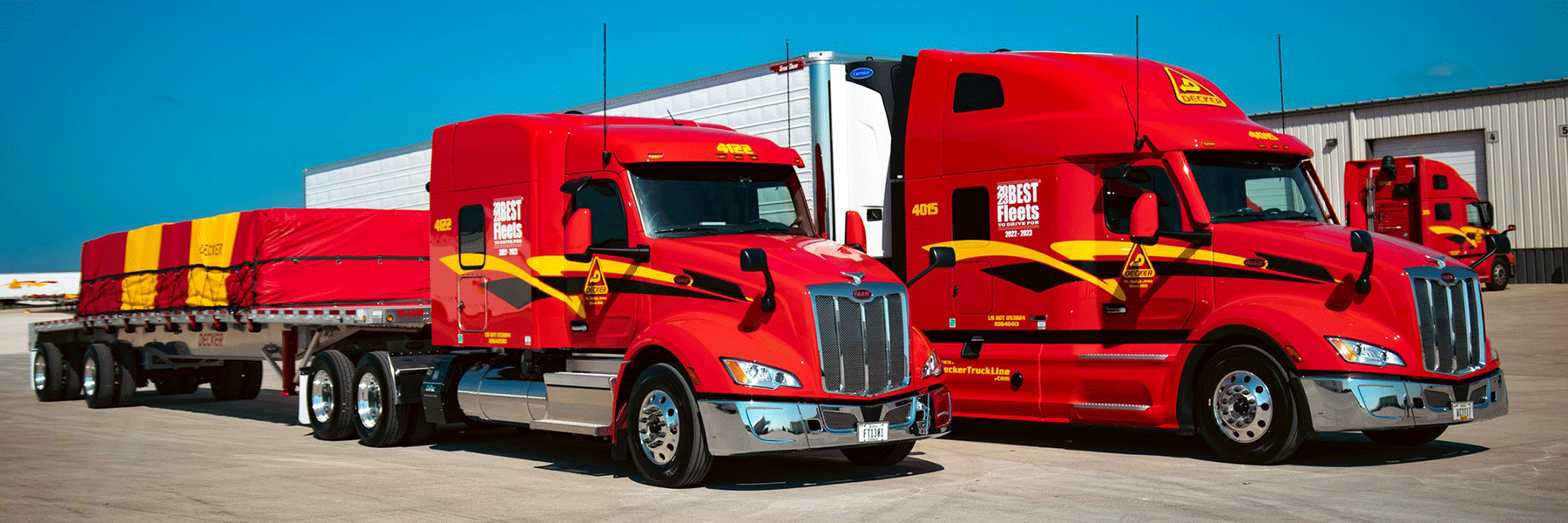Between rising operations costs, demanding customers, employee and supply shortages, and more, fleet management is becoming more and more challenging.
The stresses of managing a fleet can be incredibly overwhelming. Handling constant variables and changes with finesse is becoming more and more important to optimize your team's performance.
If you are looking to tighten your fleet's metaphorical screws and improve your management skills, there are several things you can do.
Continue reading to learn more below.
5 Ways to Improve Your Fleet Management
Implementing the following practices should get your fleet in tip-top shape and allow you to handle whatever the next wave of economic surprises might be. Here's what you need to know:
- CUT MAINTENANCE COSTS
Like many other things in today's economy, maintenance costs have been on the rise, increasing nearly 30% year after year. So, finding ways to reduce these costs needs to be every fleet manager's top priority. Staying ahead of maintenance problems can help improve fleet efficiency and ensure that your vehicles and equipment are ready.
The key here is to take a preventive (not reactive) approach to maintenance. With a quality fleet management system in place, you can help proactively extend the life of your vehicles. These systems can tell you a lot about your trucks' engines and other diagnostic problems immediately, allowing you to handle any issues before they become more serious.
Base your vehicle's maintenance schedule on accurate engine usage hours and automatic service clears instead of an arbitrary calendar date.
This will aid in eliminating unnecessary repairs and allow you to make the most of your vehicles while taking the best possible care of them. This will also avoid equipment breakdown that leads to lost revenue.
- SAVE DOLLARS ON FUEL
There's no question that fuel costs fluctuate and change like the wind. And there's no denying that a massive portion of a fleet manager's budget is dedicated to fueling expenses; it can account for nearly 60% of overall operating costs. Reducing fuel usage helps cut costs and is great for the environment.
With a sound management system in place and GPS tracking, you can monitor your drivers' fuel usage and assess their driving performance and behavior, directly affecting fuel consumption.
Tracking and analyzing this information alerts you quickly to issues you may not have noticed. Not only will this help you address problem areas concerning fuel usage, but it also alerts you to any safety issues, like aggressive driving.
Once these issues are addressed, you can significantly reduce legal and operational costs tied to an at-fault accident.
- OPTIMIZE AND PERFECT ROUTES
Optimized and perfected routes are essential for your business' reputation. Customers demand quick deliveries within a specific time window, and inaccurate arrival time estimates and inefficient routes lead to disappointment.
A business known for its quality customer service and on-time deliveries is essential for growth and continued operation. With an advanced management system, you can keep your drivers on schedule, keep their routes as efficient as possible, and receive close to real-time updates.
Hiccups along the way are an inevitable part of the industry. However, automatic customer notifications can reduce a large amount of this stress.
- AUTOMATE WORKFLOWS AND OPERATIONS
Are you still using a paper-based system? If so, it's time to toss them in the recycling bin and join the digital age.
A digitized workflow and operation will optimize your fleet's performance and vastly improve time management by reducing the risk of unavoidable human error and miscommunication. According to a McKinsey study, systems utilizing data analytics can reduce fleet costs by up to 12%.
Automating tasks, like invoicing and billing clients and customers, routing and scheduling deliveries, and sending jobs to drivers, can eliminate the need for the manager to do this, resulting in additional time and resources to put towards other needs.
- PRIORITIZE YOUR FLEET'S WELLNESS
One of the best things a fleet manager can do is prioritize your drivers' health and wellness. This skill includes promoting positive mental health and a healthy work-life balance. Undoubtedly, life on the road can affect a crew member's well-being. Here are a few ways a great fleet manager can prioritize their fleet's health:
- Communicate With Loved Ones — Encourage communication with friends and family back home. Make sure they are taking their required breaks so they have the chance to check in with a quick text or call. Consider equipping your vehicles with Bluetooth technology so they can talk while they drive.
- Encourage Fleet Interaction — Get your crew engaging with each other on their radios. Frequent small talk and sharing their stories can help counteract loneliness.
- Watch TV — Being alone, mentally and physically, is hard. However, watching television can help fulfill human interaction and connection needs.
Want to Improve Your Fleet Management? Equip Your Vehicles with EpicVue!
Finding ways to improve your fleet management is essential. One of the best ways to let your crew know you care is to equip your vehicles with EpicVue.
EpicVue specializes in outfitting your fleet with premium in-cab satellite television. We offer your drivers a bit of home on the road. Watching TV with EpicVue allows them to kick back, relax, and watch their favorite shows in their own trucks.
This practical gesture not only lets your drivers get that much-needed R and R, but it also shows your crew appreciation. In return, you're much more likely to receive loyalty and commitment, making these benefits well worth the investment!
With EpicVue, your team can catch up on their favorite shows and the latest games or news even while they're on their route. The comforts and feelings of home are hard to come by during long hauls, but your drivers can get a bit of home, regardless of where they are.
With nearly 200 premium channels, your drivers will find something to watch, regardless of their unique preferences.
Contact us today to learn more!



